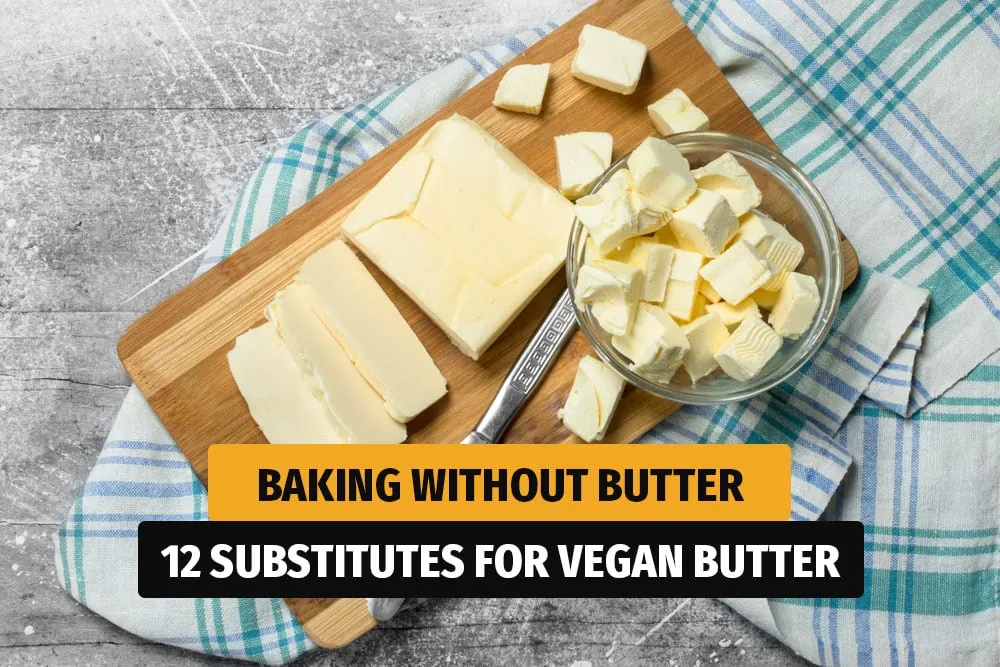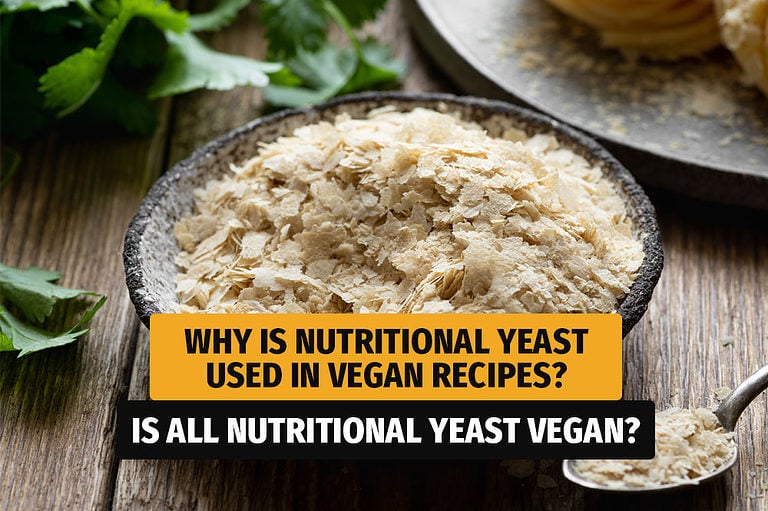
Many types of food can be significantly improved by adding butter, or in our case, vegan butter from toast to start your morning to sautéed vegetables as a side dish to your main course.
You will agree it is not the healthiest choice, though. So I want to help you by giving you a few suggestions on substituting vegan butter in baking.
When it comes to baking, timing and ingredients decide how fluffy and soft your baked creations will be.
To improve baking, many vegans like to use vegan butter and think of it as the essential ingredient in many baked goods.
Like dairy butter, vegan butter is in a block and is firmer than vegetable oil-based products sold as spreads. This means that the butter must have more saturated fat – because only saturated fat has a solid consistency at room temperature, while unsaturated fat is liquid.
For health reasons, it is wise to avoid vegan butter. »But how will I bake my cakes and cookies?«
I’m glad you asked.
I want to broaden your horizons and give tips on how to replace vegan butter in baking.
But first, let’s take a look at how vegan butter affects baking in the first place.
How Does Vegan Butter Affect Baking?
Every ingredient has its purpose, and so does vegan butter. Here are some ways in which vegan butter affects baking:
- It makes the dough smooth and elastic
- It binds with other ingredients to make the cake sponge moist
- It helps the gluten proteins in the flour to stick and remain stable
- It makes the dough airy and fluffy
- It is a flavor carrier that stands out, especially in pastry
- It makes biscuits easier to shape
How to Substitute Vegan Butter in Baking?
Many ingredients can be used instead of vegan butter. They will affect your baked goods the way butter does, but with some difference in color or taste.
Only some substitutes are suitable matches for some types of baked goods. For example, you wouldn’t put the avocado puree in a cake sponge because it might give a strange taste to it. Instead, something like applesauce would be a much better match.
I divided all substitutes into »fat-free« and »fatty« sections so you can pick your winner from one of these groups:
Fat-free vegan butter substitutes for baking:
- Banana puree
- Applesauce
- Prune puree
- Pumpkin puree
- Sweet potato puree
- Plant-based yogurt (soy, almond, coconut, etc.)
Fatty vegan butter substitutes for baking:
- Avocado puree
- Coconut butter
- Nut butter
- Coconut oil
- Olive oil
- Other plant-based oils (sesame, flaxseed, walnut, etc.)
These replacements add smoothness to your baked goods. While their tastes differ significantly from butter, they may enrich a dish differently.
Can I Use Oil Instead of Vegan Butter?
Yes, you can use any plant-based oil instead of vegan butter. Oils are an excellent vegan butter alternative since they have almost the same amount of fat as butter, so the texture of baked goods should be identical.
Just make sure the flavors match. Avoid oil when you need the fat in solid form or want a creamier texture.
Can I Substitute Olive Oil For Vegan Butter?
Olive oil gives cakes and pastries a light texture and can be used in recipes instead of vegan butter and other oils. It also offers desserts a new dimension of flavor.
While olive oil is a great vegan substitute for butter in many situations, it has a low ignition point. As a result, it bakes things fast at a higher temperature.
I suggest using a high-threshold oil, such as sesame or sunflower oil, for any recipe that requires above-medium heat baking.
Can You Substitute Vegan Butter For Coconut Oil?
Suppose you want your pie crusts to be fluffy and your biscuits to taste rich without using vegan butter. In that case, coconut oil is a great substitute. It also won’t dramatically affect the taste of the foods you love.
Note that coconut oil has a higher percentage of fatty substances, and butter has a slightly higher proportion of water than coconut oil. Suppose you notice that some of your recipes are slightly less moist when you use coconut oil instead of butter. In that case, you can overcome this dryness by adding more liquid than the recipe calls for. In addition, you can use refined coconut oil instead of butter if you don’t want a strong coconut taste.
In addition to slightly higher water content, butter has a different melting point. This may affect the overall taste and texture of the food if coconut oil is used instead of butter.
Finally, baking with unrefined, extra virgin coconut oil is best.
Can You Use Margarine Instead of Vegan Butter?
Margarine is a suitable butter replacement created by mixing water with vegetable oils like bean, maize, coconut, sunflower, or olive oil.
Vegan butter has a unique taste. It is generally described as soft, creamy, and rich, with a hint of sweetness. This is meant when another flavor is described as ‘buttery’ – luxurious and creamy.
Margarine has a somewhat ‘oily’ texture and taste. It tastes similar to vegan butter but less luxurious and depending on the additives, it can be much saltier than butter.
Conclusion
Butter is an essential ingredient that serves various purposes in baking by creating a delicate texture in cakes and tarts to add richness and flavor.
Suppose you want to replace vegan butter in your baking recipes with another similar product. In that case, many vegan butter substitutes may already be available in your kitchen.
The best substitute is the one you have on hand, but it depends on what you are baking and your preferences for taste and texture.




